|
*But Are Not More Attractive Than My Husband and Don't Stir My Loins: A Blog Dedicated to My Mom This might be my stupidest blog to date, but I'm certainly not above it. For each blog that I punctiliously pen doesn't always need to be a rung on my stepladder of avarice to earn me merits and accolades from a species of humans who are enamoured with rickets and blue raspberries and armored with knowledge of Violet Beauregarde and Bethany Hamilton (someone literally needs to "arm her"). My prophetic prose need not be suffused with synonymic language that I perused in the thesaurus in order to showcase that I attended the prestigious university of Indiana University of Pennsylvania (IUP). No, sometimes the blogs that I carefully craft are devoid of worth and are a two-demenstial street view, at best. Sometime I like to write shallow blogs that objectify men by inserting really bad puns about them and saying stuff that I would never do in real life. Sometimes, I like to write blogs that are quirky and goofy and a little bit silly. Like me. Tehe. Sue me. 💁🏽♀️ This blog is dedicated to my mom who loved shows like The Bachelor/Bachelorette and Love is Blind and who used to love telling me the celebrities that she found "so cute [Simon Peter, the apostle and Will Compton]" but "it's not like they stirred her loins because I'm old and I think that would be a sin, Lauren." 🤢 If I had to hear her say that, so do you. Without further ado, here are the hunks. *I'm 34-years old for reference.* We here at Teen's Go Rogue (just like I went rogue with this blog), love a good list. So break out your pumpkin because things are about to get spicey. Oww Oww.
|
| Lauren Barrett is a multi-passionate mom working to help all parents become their best selves and build positive relationships with their kids through mindful parenting. She has a degree in deaf education and a Master’s in Reading Education. She is a high school teacher of the Deaf and hard-of-hearing by day, a cross country coach by the afternoon, a writer/author by her son's nap times, and a full time mom to an amazing 4-year old. Lauren is a 3x author of the Add One-A-Day 30 Day Challenge, children's book, Henry's Hiccups, and parenting guide Now What? Mindful Checklists for Life's Hard Parenting Moments, a blogger at Lauren Barrett Writes, and has been published on sites like A Fine Parent, Pregnant Chicken, Pop Sugar, Her View From Home, and Scary Mommy. She loves her faith, running, visiting MLB stadiums with her husband, chocolate, scrapbooking, pretending she would actually do well on the Amazing Race, re-watching The Office, listening to Bobby Bones, and helping out all moms. She lives in North Carolina with her husband, James, and son, Henry. Follow her on Instagram at @laurenbarrettwrites, and get her free guide on what to do during the middle of a tantrum. |
0 Comments
"Honestly, I can't tell you why writing helps. When Matt died, I quit almost everything - except writing. I wasn't writing to heal. I wasn't writing to communicate to others. I wasn't writing to find peace or resolution or acceptance. I was writing because I had to. Because words leaked out of me, whether I had paper in front of me or not. " -Megan Devine
I never wanted to be an unofficial "expert" on grief (aka experience it firsthand), but here I am.
When I experience something or someone close to us experiences something, I dive in and read and read and read. My mom was the same way. We comb through the helpful advice and discard the unhelpful advice.
When I got pregnant, I read pretty much every parenting blog and book out there. I did the same when I was diagnosed with an autoimmune disease and then started to experience insomnia. When I learned that being non-racist wasn't good enough, and I had to be an antiracist, I read.
Now, I'm grieving, and I'm doing the same. Reading books. Going to grief support group. Joining Facebook Groups. Poring through Instagram posts on grief. I want to know if what I'm feeling and thinking is crazy. I want to find that I'm not alone. I want some hope that things aren't always going to feel this bad.
Here's the thing. There are a lot of people out there who are silently grieving a loss of someone.
So, I decided to put together a list of what grief can feel like after someone dies. These are common thoughts that, not only I'm thinking and feeling, but I've read and heard that other people have experienced too.
These thoughts are mostly for out-of-order deaths. Deaths when a parent dies too young and when their children are still too young. Deaths when siblings die too young. Deaths when a spouse dies too young. Deaths when a close friend dies too young. Deaths when a child dies before a parent much too young. Deaths when the person who died should have had 20, 30, 40, 50 + more years.
I'm recording all this now while it is still very fresh and early. It'll be interesting to look back on this years from now and see how I've changed.
It might sound like I'm rambling when I record these thoughts and feelings down below. But that is what grief is. It isn't neat and orderly. It's messy and chaotic and sporadic and incoherent and illogical most of the time.
I hope you find a tiny bit of solace that you aren't alone. And if you aren't grieving, I hope it helps you understand what your loved one is going through.
Grief, at least in the very early stages, is all consuming. You think about little else. You have no idea what is going on in the news (except that Taylor Swift watched Travis Kelce play). You have really no idea what is going on in other people's lives. It feels selfish. But it isn't that you don't care. It's that your brain isn't capable right now of taking on much of anything else. Your brain is protecting you.
Grief feels like a hole in your chest and stomach. It throbs. It lingers. It feels empty. It longs for the past and the way things were.
Grief looks differently for everyone. It has no timeline. It has no stages. Year 2 might be harder than Year 1.
Your life is now very distinctly divided into two parts: BEFORE and AFTER. Sometimes you spend hours trying to live in the before.
I usually look for the lesson during hard times, but my mom didn't need to die for me to be taught a lesson. I already appreciate life. I already didn't take her for granted. I already immensely enjoyed our time together. What was the lesson? Sometimes there is no lesson. Sometimes we just aren't meant to know the answers. It's God's Plan, and we will know once we die and it will all make sense.
I'm really happy for my mom. I know she is in Heaven. But I'm so, so sad for me. I miss her. So much.
Your mission becomes getting to Heaven and everyone you know to Heaven. Hopefully, though, not for a long, long time.
People say that my mom wouldn't want be to me unhappy. I say back to that, "Well, I didn't want my mom to die, so we can't get everything we want now can we, Mom." 😉
I'm not just mourning the loss of my mom. I'm grieving the loss of our family dynamics. Our future. Our dreams. My mom and dad's relationship. My mom's relationship with my brother. My mom's relationship with my son. The other kids who I thought I would have had by now and whom my mom will never meet. And I'm grieving so much more.
I'm also grieving the loss of me. I realize that I'll never be the same person I once was.
You also mourn the death that you thought you would have had with her. In my mind, I pictured it 20+ years down the road. She is lying in bed with the sun streaming in. We play her favorite music. We all hold her hands and share happy memories. It's sad, but we relish in the fact that she had a long, happy life with us. In reality, I got none of that. It was quick. It was traumatic. There were no sounds except for the haunting noises of the hospital. I couldn't breathe. And I couldn't even look at her while she died because I thought I would have a panic attack and couldn't accept the fact that this was really happening. Like maybe if I shut my eyes real tight that this would all just be a nightmare.
You replay the events leading up to the death over and over. The call. The wait. The drive. The first look. The crying. The anger. The looks on everyone's faces as they one-by-one come into the hospital room. The decisions. The watching her die. The slow walk back to the car when you look out and realize the world didn't stop after the worst thing that's ever happened to you happened.
You go over all the things, and I mean all the things, you did during the last month together and try to make sense how someone so alive is now dead. Trip to waterfall. Picnic. Lake. Hiking. Swimming. Family dinners. Mini Golf. Science Museum. Sleepovers. Eye Spy in the Car. Sitting on her bed laughing. Mall. Dinner. Concert. Beach. Laughing in Church at My Dad's Getting Sunscreen in His Eyes. More dinner. Ice Cream. Ferry ride. Phone Calls. FaceTime. Trivia. Hug. Dead.
You try to assign a reason to why she died. For me, I thought maybe she was going to get diagnosed with dementia shortly after and she wouldn't want us to see that in her. But this is fruitless. It's unfair. We still should have had so many good times left.
You scroll through pictures, videos, texts, cards, journals constantly. Realizing that this is all you have. All you have left of their voice. All you have left of their words. All you have left are the memories and love.
You don't want to get rid of anything. Her laundry because it still smells like her. The clothes she wore to the hospital that day. The food she had to eat. Her phone number pinned to the top of your phone. Everything that is hers. You want to keep it all.
You want to be kinder and more compassionate to anyone who has ever gone through this or something similar.
You want to talk about the person you loved who died every second of every day. The memories. The death. All of it.
You allow yourself to be happy for just a little. Then, you immediately feel bad when it's over. How can I feel happy when my mom is dead?
Sometimes you're fine or appear to be fine. You carry on. You have normal conversations. You laugh. You make jokes about death and how you no longer have a mom alive. You do everyday tasks. You truly do feel fine in that moment. Grieving people don't need to be analyzed. Sometimes you really are fine. And sometimes you just want to pretend to be fine in that moment. BUT it doesn't mean that you are "over it" or have "moved on." It doesn't mean that you are no longer deeply sad. There is none of that. Grief will always be there.
You want to make the most of the time you have left on Earth AND you want to stay sad forever because being sad means you still feel close to her.
You are so scared to forget. Right now I can hear her voice, know what she would say in a certain situation, picture the way she walked and what her body looked like, her mannerisms. I can look into a room, a place, etc and visualize clearly her being there. Forgetting all of that is terrifying. Knowing my son won't really remember her besides the memories we share of her is even more so.
The pain is my reminder of our amazing times together.
You become scared more people you love will die premature deaths.
You now want to capture every moment.
You don't want to die. You realize that you have so many people to live for and experience life with. BUT you aren't afraid to die anymore.
You'll never "get over" this. It isn't something to conquer.
You are hyperaware of your loved one's absence in everything you do. For a split second or minute you forget, and the reminder punches you in the gut.
Knowing that you might live 50+ years without your loved one knocks the breath out of you. Sometimes it gets so hard to breathe. You feel like you're suffocating. You scream inside of your head, "Please, Mom, God, please please help me calm down in this moment."
A lot of people grieving have silent screams trapped inside of their heads all day.
Saying their names doesn't remind us that they died. It reminds us that they lived. Say their names. Share memories of them. We might cry. We might tear up. That's okay.
We aren't sorry for talking about our loved one or writing about them or posting about them. We aren't sorry if people feel uncomfortable with our sadness.
Knowing that I won't see my mom again the rest of my life on Earth is an impossible thought.
So sometimes I have to pretend that she isn't dead. She's just away somewhere where she can't communicate, so I write letters to her everyday to send to her.
Hope does come. It comes in the form of my son's laughing and playing. My husband's sharing a memory of my mom. My brother's and dad's texts that I look forward to everyday. It comes from family members and friends checking in. It comes from my support group and freely being able to talk about my mom with people who understand. It comes from seeing signs from my mom.
You realize that everything that will make you happy in this life will also make you a little bit sad because you can't share it with your loved one anymore. You actually don't ever want to stop being sad.
You have guilt. Guilt of any fight you've ever had. Guilt of anytime you didn't want to answer her call or said "no" to doing something with her. Because now you know just how short life truly is. But it isn't fair because everyone has fights. Everyone cancels plans. Everyone can't answer every call and FaceTime. Forgive yourself.
You worry about your child. You worry they will forget your loved one. You worry that your child will think of you as the sad mom. You worry that you are relying on them too much because they make you so happy in a world right now that is so sad. It isn't their responsibility to make you happy. You know this. However, you can't help wanting to hug them all the time.
You realize that there is no recovery. Recovery means a return to your normal state. Your normal state is no more. It can't be. And that's okay.
Grief is lonely no matter how many people you have around you who love and support you. Because only you can truly go through your own grief. Only you had the kind of relationship you had with your loved one. No one else.
But being around people who understand helps. A lot. And having a support team helps. A lot.
Grief doesn't need to be fixed and distracted all the time. Grief isn't a disorder. Sometimes it's good to just be sad.
But distractions are nice from time to time. Your brain can't think about death 24/7.
Grief can make you quiet. Very quiet. Large social settings are even tougher.
Emotions change hourly in grief.
Seeing life move on is so, so hard. You know that it has to, but it doesn't make it any easier.
You worry that people won't stick around while you are still so sad. You worry that one day they will tell you to stop writing about your mom. Stop posting about her. Stop talking about her. They want and expect you to "move on." Their uncomfortableness around you is evident. They stop asking you to do things. They stop calling and texting you. Your grief makes them too sad, like grief is contagious or something. You pray that that doesn't happen. Because you can't stop writing about her. Can't stop talking about her. And you absolutely can't move on. You know that life won't always look like it does now. But the love my mom and I have for each other is. It's not our love was. The love will always be kept alive in your heart and how can you not talk about something that is alive in your heart?
Reaching out is hard. It requires a lot of effort to express what you need. And sometimes you don't have it in you to talk about anything other than your loved one or what happened. You really appreciate the people who just "show up" and continue to reach out.
And I will finish with a quote from Megan Devine, "Here is what grieving people want you to know: We love you. We still love you, even if our lives have gone completely dark, and you can't seem to reach us. Please stay. It's an immense relief to spend time with people who can be with the reality of grief without saying much. It's a relief to be with people who can roll with whatever comes up - from laughing maniacally to sobbing uncontrollably in the space of a few minutes....you can't do this perfectly, and we don't expect you to. You can only aim toward more love."
Resources
Here are some books and resources that I have felt comforted in reading. They are helpful if you are grieving or know someone who is grieving. We really don't talk about grief as we should since death is the one thing that will happen to everyone. It should be taught in school and beyond.
- It's OK That You're Not OK by Megan Devine
- Healing After Loss: Daily Meditations for Working Through Grief by Martha W. Hickman
- Healing After the Loss of Your Mother: A Grief and Comfort Manual by Elaine Mallon
- Imagine Heaven: Near-Death Experiences, God's Promises, and the Exhilarating Future That Awaits You by John Burke
- How to Help a Grieving Friend - a 3-page essay
- Refuge in Grief on Instagram
- Untangle Grief on Instagram
One of the best things I read about grief...⬇️
| Lauren Barrett is a multi-passionate mom working to help all parents become their best selves and build positive relationships with their kids through mindful parenting. She has a degree in deaf education and a Master’s in Reading Education. She is a high school teacher of the Deaf and hard-of-hearing by day, a cross country coach by the afternoon, a writer/author by her son's nap times, and a full time mom to an amazing 4-year old. Lauren is a 3x author of the Add One-A-Day 30 Day Challenge, children's book, Henry's Hiccups, and parenting guide Now What? Mindful Checklists for Life's Hard Parenting Moments, a blogger at Lauren Barrett Writes, and has been published on sites like A Fine Parent, Pregnant Chicken, Pop Sugar, Her View From Home, and Scary Mommy. She loves her faith, running, visiting MLB stadiums with her husband, chocolate, scrapbooking, pretending she would actually do well on the Amazing Race, re-watching The Office, listening to Bobby Bones, and helping out all moms. She lives in North Carolina with her husband, James, and son, Henry. Follow her on Instagram at @laurenbarrettwrites, and get her free guide on what to do during the middle of a tantrum. |
I wasn't going to write my mom's origin story I had spent a summer blogging about our family and trying to make Barstool fans laugh. I had no more stories left in me.
But one day, I had a spark of inspiration and the words started to pour out of my keyboard faster than Doug Wanoy composing a Tweet about trans athletes.
When I was finished, I sat down next to her and let her read it for approval. She read it twice and we laughed and laughed together.
"Do you think people will like it, Lauren?"
"Will they laugh?"
Please read her origin story first in order to understand her death story.
But one day, I had a spark of inspiration and the words started to pour out of my keyboard faster than Doug Wanoy composing a Tweet about trans athletes.
When I was finished, I sat down next to her and let her read it for approval. She read it twice and we laughed and laughed together.
"Do you think people will like it, Lauren?"
"Will they laugh?"
Please read her origin story first in order to understand her death story.
In early 2023, my husband and I announced that we would be adopting a baby.
One would think that that event would epitomize the year as the “biggest thing to happen” in the Bauer-Barrett family.
But, alas, it just wasn’t so.
For my mother, Jonette Bauer, although a true momager, was about to depart this earth in what is now dubbed the Coma Incident and which officially cemented its place as the “Biggest Thing to EVER Happen” to our family.
I’ll never forget that day. It was a glorious summer day. I was still reveling in the bliss of summer break when we decided to take a family trip to a cabin in the mountains with friends to celebrate the end of summer and my birthday.
I was deliciously sipping on a glass of Rosé, my first glass of the day in the hot tub overlooking the mountains, wistfully discussing our upcoming adoption and baby. Soaking it all in figuratively and literally.
Suddenly the vibrations of my IPhone rattled me out of my dreamlike state.
It was my father.
I answered.
“Lauren. It's your mother. Please pray for her,” he said.
One would think that that event would epitomize the year as the “biggest thing to happen” in the Bauer-Barrett family.
But, alas, it just wasn’t so.
For my mother, Jonette Bauer, although a true momager, was about to depart this earth in what is now dubbed the Coma Incident and which officially cemented its place as the “Biggest Thing to EVER Happen” to our family.
I’ll never forget that day. It was a glorious summer day. I was still reveling in the bliss of summer break when we decided to take a family trip to a cabin in the mountains with friends to celebrate the end of summer and my birthday.
I was deliciously sipping on a glass of Rosé, my first glass of the day in the hot tub overlooking the mountains, wistfully discussing our upcoming adoption and baby. Soaking it all in figuratively and literally.
Suddenly the vibrations of my IPhone rattled me out of my dreamlike state.
It was my father.
I answered.
“Lauren. It's your mother. Please pray for her,” he said.
My Mom's End Story
*Some events in this story have been exaggerated or slightly altered for dramatic effect.*
My mom, although very active and healthy (She had worked out religiously and had eaten her oatmeal and fruit salad every day), had always been lackluster in the genetics and luck departments.
While that might sound harsh to you, when you come from or marry into a family who is constantly boasting the best traps at the body bar, never missing a day of work because Doug has willed away every sickness and cold he's ever had, or surviving brain aneurysm surgery like I did 4 years ago, lack of luck with your health will get you ridiculed.
And my poor mom was no exception. When we would all pull up our health charts to review with one another, we would scoff at her long list of procedures and surgeries that oozed with her trying to be unlucky and unhealthy like her breast cancer, skin cancer, three brain aneurysms, potential risk for dementia, fractured shoulders, broken wrists, and osteoporosis compared to one of our “Going to The Hospital for Taking Too Many Weed Gummies” or "Going to the Hospital Because She Couldn't Sleep for One Night" in a game of Who Has the Best Medical Records.
“I wonder who is going to die first?” we would say dripping with sarcasm.
HOWEVER, before you start to pity poor Mrs. Bauer, know this, my mother would not be deterred and was tenacious in her own sense, especially when it came to her precious family.
Despite her lack of ability in both genetics and luck she made up for that in her desire to always do what was best for us even if it was a tad bit extreme.
She would come to every cross country meet of mine in college and insist that I bring my dirty laundry, so she could wash, fold, and iron it and give it back a week later at the next meet. So I would have to lug my dirty laundry bag onto the bus and embarrassingly hand it over to my mommy.
She called every apartment complex in New York City to make sure Kyle had a place to live after he "forgot" that he had to be out of his apartment in two days.
She meticulously would iron and set out my dad's clothes everyday because he's colorblind.
She would bemoan all her prayers and worries about us to God as He tried to inject quips that we were all doing all right.
"I know your son tried cocaine once but at least he's 'no Cain.' Ha Ha. Get it? Cain killed Abel out of jealousy. Did you find that funny, Jonette? Jonette? You still there?"
"Yeah..."
But God's comment was brushed away only to be reminded that Kyle might have denounced Him, the Holy Father, once on the Yak (he didn't).
For she was our biggest cheerleader and ultimately the most selfless person to us at that time.
And like any good Mom who loves their family, there bounds to come a time when she has a killer idea (pun intended) that would literally kill her.
And for our mother that time was the Coma Incident.
While that might sound harsh to you, when you come from or marry into a family who is constantly boasting the best traps at the body bar, never missing a day of work because Doug has willed away every sickness and cold he's ever had, or surviving brain aneurysm surgery like I did 4 years ago, lack of luck with your health will get you ridiculed.
And my poor mom was no exception. When we would all pull up our health charts to review with one another, we would scoff at her long list of procedures and surgeries that oozed with her trying to be unlucky and unhealthy like her breast cancer, skin cancer, three brain aneurysms, potential risk for dementia, fractured shoulders, broken wrists, and osteoporosis compared to one of our “Going to The Hospital for Taking Too Many Weed Gummies” or "Going to the Hospital Because She Couldn't Sleep for One Night" in a game of Who Has the Best Medical Records.
“I wonder who is going to die first?” we would say dripping with sarcasm.
HOWEVER, before you start to pity poor Mrs. Bauer, know this, my mother would not be deterred and was tenacious in her own sense, especially when it came to her precious family.
Despite her lack of ability in both genetics and luck she made up for that in her desire to always do what was best for us even if it was a tad bit extreme.
She would come to every cross country meet of mine in college and insist that I bring my dirty laundry, so she could wash, fold, and iron it and give it back a week later at the next meet. So I would have to lug my dirty laundry bag onto the bus and embarrassingly hand it over to my mommy.
She called every apartment complex in New York City to make sure Kyle had a place to live after he "forgot" that he had to be out of his apartment in two days.
She meticulously would iron and set out my dad's clothes everyday because he's colorblind.
She would bemoan all her prayers and worries about us to God as He tried to inject quips that we were all doing all right.
"I know your son tried cocaine once but at least he's 'no Cain.' Ha Ha. Get it? Cain killed Abel out of jealousy. Did you find that funny, Jonette? Jonette? You still there?"
"Yeah..."
But God's comment was brushed away only to be reminded that Kyle might have denounced Him, the Holy Father, once on the Yak (he didn't).
For she was our biggest cheerleader and ultimately the most selfless person to us at that time.
And like any good Mom who loves their family, there bounds to come a time when she has a killer idea (pun intended) that would literally kill her.
And for our mother that time was the Coma Incident.
My Mom Has to Have Brain Aneurysm Surgery
My mom found out she had a third brain aneurysm in the spring of 2023, and no one in the family, including her, thought anything of it.
And, little did they know, they also began to live and breath like she was dying over the next few months.
"Lauren, we just scheduled our Bucket List trip to Yellowstone and the Grand Tetons with my friends for June. Lauren, Kyle's girlfriend just texted me. I think she really likes me. I like her too. I'm so glad we are all going to be together in New Jersey in July. This is all the best news.."
"Mom, I just told you that we are adopting. Can we speak about this later? I need to finalize the papers."
But as March turned into April and April into May and June, my mom began to pivot. If you know my mom, you know that she can pivot better than any Olympic figure skater.
"I'm worried that if I don't schedule this brain aneurysm soon then I won't be able to help Kyle with his move to Chicago"
"I'm concerned that your in-laws are going to have to watch your son while I recover from the surgery. I need to schedule it before you go back to work full time, so I'm not a burden to them."
"Lauren, I scheduled the surgery for August 18. It's your birthday weekend, but we will do something when I get home from the hospital...."
And, little did they know, they also began to live and breath like she was dying over the next few months.
"Lauren, we just scheduled our Bucket List trip to Yellowstone and the Grand Tetons with my friends for June. Lauren, Kyle's girlfriend just texted me. I think she really likes me. I like her too. I'm so glad we are all going to be together in New Jersey in July. This is all the best news.."
"Mom, I just told you that we are adopting. Can we speak about this later? I need to finalize the papers."
But as March turned into April and April into May and June, my mom began to pivot. If you know my mom, you know that she can pivot better than any Olympic figure skater.
"I'm worried that if I don't schedule this brain aneurysm soon then I won't be able to help Kyle with his move to Chicago"
"I'm concerned that your in-laws are going to have to watch your son while I recover from the surgery. I need to schedule it before you go back to work full time, so I'm not a burden to them."
"Lauren, I scheduled the surgery for August 18. It's your birthday weekend, but we will do something when I get home from the hospital...."
The Coma Incident
Well, as the story goes, my mom did, in fact, have brain aneurysm surgery on August 18.
Things went well from the start for our precious mom. She was on the phone with Gap before the surgery trying to get them to let her purchase something on sale before the doctor came in. She had the surgery and came out of it. She sent my dad home and told him to have fun but not too much fun.
But once again my mom pivoted faster than my husband running into Sophia Rosing at the University of Kentucky.
Mom: "What's this? Where am I?"
God: "You're in a coma. Something happened after the surgery. This is the place between life and death that you read about when people have near-death experiences."
Mom: "It's so peaceful here. Ohh...can you tell me things about my family?"
God: "Yes, I can show you some things."
God's visions were pinging my mom's dopamine levels and making her say "I'm dead" more than...well, she was actually about to be.
But then I got The Call on August 18 and she performed better than Ding Ning at the 2016 Summer Olympics with the way she was pinging and ponging back and forth.
“Lauren. It's your mother. Please pray for her,”
My wine hazed brain wasn't going to fall for this again. "What's going on? Did she relapse again and start listening to ANUS?"
Never in my wildest dreams would I have thought that my mom was in a coma as we spoke and that she might not come out of it.
Meanwhile back at the hospital:
Mom: "So, how are my son, daughter, and husband in the next few months? I constantly pray for them."
God: "Well, there will be some news about Obama that is going to come out soon that might get your husband who goes by Doug on Twitter into a little bit of trouble. He's looking at a potential racism and homophobic felony."
Mom: "Oh dear. And my daughter? She's going back to school soon. I don't want her to relapse."
God: "Relapse on what?"
Mom: "Well, she tries to do too much at the start of the school year. The last few years she has had some health issues at the start of the school year. Teaching. Coaching. Now, she's adopting. Is she going to be stressed?"
God: "She'll get stressed out. But...."
Mom: "I won't have that. What about my son?"
God: "Ohh...good. He goes to this guy named Stu's house next week and takes off his shirt. People go WILD."
Mom: "WHAT! That's unacceptable. What did I tell him about staying humble and kind? That's it. I'm going to have to die. My daughter will get to take some time off work, and she can use my death to help raise money for her adoption. My husband will take a break from Tweeting, and my son won't go to Stu's house and maybe he'll go back to church. Perfect. This settles it. I'm dying, God."
God: "Whoa, there. That's extreme. You must REALLY love your family."
Ping
It didn't make sense, but it should come as no surprise to me that out of all unlucky, unhealthy factors that people have to endure (*Side note* I do know that people suffer a lot worse), of course, my mom would be the one to have this happen.
"So, they're saying that the surgery went fine and then something happened and now she might not live?"
"That's what they're saying. But I don't know what to believe."
"Get my aunt on the phone. She goads. Plain and simple. She'll get them to talk. "
Just then Drake's God's Plan blasted from the speakers of the IPhone playing our cabin weekend playlist.
Meanwhile back at the hospital:
Mom: "What's that loud noise? I just heard my daughter speaking. Goads plain. Goads plan. God's plan. Of course, God's plan! You're right. It's your plan. Not mine. Who was I kidding? My family would be so sad if I die, and my grandson won't understand."
Pong
We got the news shortly before midnight that she was stable and in no immediate danger. She wasn't going to die! What a relief.
Meanwhile back at the hospital:
God: "Well, remember when you all were at the beach last week and your grandson kept asking you out of the blue, "Grandma, are you in pain?"
Mom: "Yeah, we thought it was funny. He kept asking. We didn't know why.
God: "Do you remember what you said?"
Mom: "Yeah...I said, 'No, silly, I'm not in pain.' "
God: "You were indirectly letting him know that you were going to be okay. And he'll have a childlike understanding that will help him deal with what happens."
Mom: "Wow. What about the rest of my family?"
God: "They will be in deep pain for a while. They will always miss you so much, but I'll be with them along the way, and you will too. They'll always sense your presence and love. We'll send them signs. We will work through your grandson too. He'll say and do miraculous things that will help ease their grief. They'll learn to grow around their pain and one day, they will start thriving again. But they will carry you with them forever."
Mom: "Thank you. I think I'm ready. I feel so at peace."
God: "You have free will, but there are a few more things that I need to reveal to you before we move forward."
God here shows my mom why she has to die.
Mom: "Yes, you're right. I see it all clearly now. I'm going to have to die. But can I wait for them to all get here?"
God: "Of course."
Mom: "And one more thing. Can I die before my daughter's birthday?"
God: "We can make that happen. Here, take my hand. Be not afraid. I go before you always. Come follow me, and I will give you rest."
Ping. Pong.
And the rest, as they say, is history...
In Summary...
Thank you for allowing me to write something that was funny, dark, sad, spiritual, and philosophical.
I will never stop talking and writing about my mom..
She had an impactful influence on my life, and I'll always share about her when given the opportunity and the words come pouring out.
I will never stop talking and writing about my mom..
She had an impactful influence on my life, and I'll always share about her when given the opportunity and the words come pouring out.
Buy me a coffee if you liked this blog.
And if you're a parent, check out my parenting guide Now What? Mindful Parenting Checklists for Life’s Hard Moments.
And if you're a parent, check out my parenting guide Now What? Mindful Parenting Checklists for Life’s Hard Moments.
| Lauren Barrett is a multi-passionate mom working to help all parents become their best selves and build positive relationships with their kids through mindful parenting. She has a degree in deaf education and a Master’s in Reading Education. She is a high school teacher of the Deaf and hard-of-hearing by day, a cross country coach by the afternoon, a writer/author by her son's nap times, and a full time mom to an amazing 4-year old. Lauren is a 3x author of the Add One-A-Day 30 Day Challenge, children's book, Henry's Hiccups, and parenting guide Now What? Mindful Checklists for Life's Hard Parenting Moments, a blogger at Lauren Barrett Writes, and has been published on sites like A Fine Parent, Pregnant Chicken, Pop Sugar, Her View From Home, and Scary Mommy. She loves her faith, running, visiting MLB stadiums with her husband, chocolate, scrapbooking, pretending she would actually do well on the Amazing Race, re-watching The Office, listening to Bobby Bones, and helping out all moms. She lives in North Carolina with her husband, James, and son, Henry. Follow her on Instagram at @laurenbarrettwrites, and get her free guide on what to do during the middle of a tantrum. |
We've taken two separate weekend trips to Beaufort and now it will forever hold a special place in my heart as it was the last trip we ever took with my mom before she passed away a week later unexpectedly.
Beaufort, North Carolina is roughly 2 1/2 hours away from the Raleigh area.
Beaufort is the fourth oldest town in North Carolina. Beaufort was ranked as "America's Coolest Small Town" by readers of Budget Travel Magazine. It's minutes away from beaches on the Crystal Coast.
Beaufort, North Carolina is roughly 2 1/2 hours away from the Raleigh area.
Beaufort is the fourth oldest town in North Carolina. Beaufort was ranked as "America's Coolest Small Town" by readers of Budget Travel Magazine. It's minutes away from beaches on the Crystal Coast.
Beaufort gives off quaint, historic, small town coastal city vibes and is featured in two Nicholas Sparks novels: A Walk to Remember and The Choice.
Strongly consider taking a weekend trip here with your kids because you won't be disappointed and it will leave you feeling relaxed.
Strongly consider taking a weekend trip here with your kids because you won't be disappointed and it will leave you feeling relaxed.
Where We Stayed
Both times we stayed in AirBNBs.
The first time we stayed at the Beau Retreat. This was 3 miles from the city center.
The second time we stayed at the Seahorse, which was within walking distance to downtown - Front Street.
While the walls are thin and you can hear clearly someone above you, I liked this AirBNB more because it was so close to everything.
The first time we stayed at the Beau Retreat. This was 3 miles from the city center.
The second time we stayed at the Seahorse, which was within walking distance to downtown - Front Street.
While the walls are thin and you can hear clearly someone above you, I liked this AirBNB more because it was so close to everything.
Where We Ate
There's plenty to eat in Beaufort. NC Tripping recommends Moonrakers.
Here are the places we ate and enjoyed all of them:
1. City Kitchen - Waterfront restaurant located above Town Creek Marina. This restaurant specializes in Southern American Fusion. It has an outdoor area with a tiki bar.
2. Beaufort Grocery - I didn't eat here myself, but my dad and husband did. They enjoyed it. It's located in downtown Beaufort's historic district on Queen Street.
3. 34° North - This beautiful restaurant in Beaufort is located on Taylor Creek and is a great spot to get brunch.
4. Black Sheep - This pizza joint is located right in downtown on Front Street. It offers views of the water and boardwalk.
5. Beaufort Creamery - No trip is complete without ice cream and this local parlor on Front Street sure doesn't disappoint.
Here are the places we ate and enjoyed all of them:
1. City Kitchen - Waterfront restaurant located above Town Creek Marina. This restaurant specializes in Southern American Fusion. It has an outdoor area with a tiki bar.
2. Beaufort Grocery - I didn't eat here myself, but my dad and husband did. They enjoyed it. It's located in downtown Beaufort's historic district on Queen Street.
3. 34° North - This beautiful restaurant in Beaufort is located on Taylor Creek and is a great spot to get brunch.
4. Black Sheep - This pizza joint is located right in downtown on Front Street. It offers views of the water and boardwalk.
5. Beaufort Creamery - No trip is complete without ice cream and this local parlor on Front Street sure doesn't disappoint.
What We Did
There is so much to do here.
But here's what we did:
1. Island Ferry Adventures: We took this ferry twice on two separate occasions. One time to Bird Shoal and the other time to Sand Dollar Island. Sand Dollar Island will probably be more fun for kids as they have the allure of searching for living and dead sand dollars.
2. Radio Island Beach Access: Want to enjoy the beach without the waves? Go to Beaufort's public beach. You can drive and park here.
3. Atlantic Beach: I should probably do a whole separate post on Atlantic Beach, but I like to pair Atlantic Beach with Beaufort because they are so close. It's about a 15 minute drive here and you can hang out on the ocean all day.
4. Pine Knoll Shore Aquarium: An easy 24 minute drive from Beaufort, this is a good indoor activity for kids. Although I wasn't too impressed as an adult, my 4-year old loved it.
5. Footloose on the Neuse: I have to put this on here because it was tradition for my mom, dad, and I to go. Well, we went two years in a row and were planning to go a third. Take the hour drive to New Bern and go to their Footloose on the Neuse tribute concerts. We had a blast both times. We ate at Persimmons Waterfront Restaurant both times too. Hopefully, we continue going in remembrance of my mom.
But here's what we did:
1. Island Ferry Adventures: We took this ferry twice on two separate occasions. One time to Bird Shoal and the other time to Sand Dollar Island. Sand Dollar Island will probably be more fun for kids as they have the allure of searching for living and dead sand dollars.
2. Radio Island Beach Access: Want to enjoy the beach without the waves? Go to Beaufort's public beach. You can drive and park here.
3. Atlantic Beach: I should probably do a whole separate post on Atlantic Beach, but I like to pair Atlantic Beach with Beaufort because they are so close. It's about a 15 minute drive here and you can hang out on the ocean all day.
4. Pine Knoll Shore Aquarium: An easy 24 minute drive from Beaufort, this is a good indoor activity for kids. Although I wasn't too impressed as an adult, my 4-year old loved it.
5. Footloose on the Neuse: I have to put this on here because it was tradition for my mom, dad, and I to go. Well, we went two years in a row and were planning to go a third. Take the hour drive to New Bern and go to their Footloose on the Neuse tribute concerts. We had a blast both times. We ate at Persimmons Waterfront Restaurant both times too. Hopefully, we continue going in remembrance of my mom.
That's Beaufort for you! And my husband and I seriously talked about having a small house or condo here one day because we like it so much. Hope you can visit with your kids!
Buy me a coffee if you liked this blog.
And if you're a parent, check out my parenting guide Now What? Mindful Parenting Checklists for Life’s Hard Moments.
Buy me a coffee if you liked this blog.
And if you're a parent, check out my parenting guide Now What? Mindful Parenting Checklists for Life’s Hard Moments.
Check out these other North Carolina destinations.
| Lauren Barrett is a multi-passionate mom working to help all parents become their best selves and build positive relationships with their kids through mindful parenting. She has a degree in deaf education and a Master’s in Reading Education. She is a high school teacher of the Deaf and hard-of-hearing by day, a cross country coach by the afternoon, a writer/author by her son's nap times, and a full time mom to an amazing toddler. Lauren is a 3x author of the Add One-A-Day 30 Day Challenge, children's book, Henry's Hiccups, and parenting guide Now What? Mindful Checklists for Life's Hard Parenting Moments, a blogger at Lauren Barrett Writes, and has been published on sites like A Fine Parent, Pregnant Chicken, Pop Sugar, Her View From Home, and Scary Mommy. She loves her faith, running, visiting MLB stadiums with her husband, chocolate, scrapbooking, pretending she would actually do well on the Amazing Race, re-watching The Office, listening to Bobby Bones, and helping out all moms. She lives in North Carolina with her husband, James, and son, Henry. Follow her on Instagram at @laurenbarrettwrites, and get her free guide on what to do during the middle of a tantrum. |
Carolina Beach is a little over a 2 hour drive from the Raleigh area. While you could make a day trip out of this coastal town, we decided to spend one night. And we had a great time!
I had been wanting to go to Carolina Beach with my son ever since I found out that part of The Summer I Turned Pretty was filmed there.
Known for its vintage boardwalk, Carolina is a fun beach to take your kids to.
We decided to go down Thursday because every Thursday in the summer, Carolina Beach Boardwalk has live music and fireworks. And it didn't disappoint.
I had been wanting to go to Carolina Beach with my son ever since I found out that part of The Summer I Turned Pretty was filmed there.
Known for its vintage boardwalk, Carolina is a fun beach to take your kids to.
We decided to go down Thursday because every Thursday in the summer, Carolina Beach Boardwalk has live music and fireworks. And it didn't disappoint.
Where We Stayed
We decided to stay at Dry Dock Inn. This cute and newly remodeled hotel is only a short walk to the beach and boardwalk. In fact, you can see the boardwalk from the balcony of the hotel.
The hotel itself has two pools, a sitting section, and a game area for adults and kids. While I wish we had more time to take advantage of the pools, we did have some time to play ping pong and cornhole.
Since it was just my dad and son with me, we decided to get the room with a queen bed and pull out couch. It worked well.
I highly recommend this affordable inn which we were able to book last minute.
The hotel itself has two pools, a sitting section, and a game area for adults and kids. While I wish we had more time to take advantage of the pools, we did have some time to play ping pong and cornhole.
Since it was just my dad and son with me, we decided to get the room with a queen bed and pull out couch. It worked well.
I highly recommend this affordable inn which we were able to book last minute.
Where We Ate
Carolina Beach has a lot of great restaurants, so we had to be selective where we ate.
Our first stop was Britts Donut Shop on the Boardwalk. I had heard about this place on Instagram, so I was eager to see what the hype was all about.
WOW! These were the best donuts I've ever had. They have one flavor, homemade glazed, and you can only pay in cash.
It's safe to say that one visit wasn't enough.
Our dinner plans had to get slightly altered when Fork N Cork had a too long of a wait (they don't take reservations), so we went to The Sandspur. It's between the Dry Dock Inn and the Boardwalk. We sat outside on their back patio which was perfect for my son to run around with the other kids. We could still hear the music coming from the Boardwalk.
After dinner dessert was assorted candy from the Sweet Life.
And finally breakfast the next day was at Malama Cafe. We took our meal to go and ate on the Boardwalk overlooking the beach.
Our first stop was Britts Donut Shop on the Boardwalk. I had heard about this place on Instagram, so I was eager to see what the hype was all about.
WOW! These were the best donuts I've ever had. They have one flavor, homemade glazed, and you can only pay in cash.
It's safe to say that one visit wasn't enough.
Our dinner plans had to get slightly altered when Fork N Cork had a too long of a wait (they don't take reservations), so we went to The Sandspur. It's between the Dry Dock Inn and the Boardwalk. We sat outside on their back patio which was perfect for my son to run around with the other kids. We could still hear the music coming from the Boardwalk.
After dinner dessert was assorted candy from the Sweet Life.
And finally breakfast the next day was at Malama Cafe. We took our meal to go and ate on the Boardwalk overlooking the beach.
What We did
Obviously, we spent the majority of the time on the beach. My dad, Henry, and I both prefer when the beach is overcast, so we spent a good bit of time relaxing on the beach and playing in the sand, and water.
When we weren't eating or hanging out at the beach, we were walking around the Boardwalk. I'm not a fireworks or amusement rides type person, but my son enjoyed it all, and I get pleasure from his joy. Plus the live music was really good.
My son is only four, so we didn't do too many rides. We did the bumper cars, fun house, and he did a kiddie ride by himself. In my opinion, the ride tickets are way too expensive. But, remember, I HATE amusement park/carnival rides. They make me sick. The bumper cars even made me sick.
Even still, though, I feel like Carolina Beach Boardwalk transports you back in time and hasn't totally succumbed to all the moderness of some other beaches and tourist attractions.
I highly recommend going.
Buy me a coffee if you liked this blog.
And if you're a parent, check out my parenting guide Now What? Mindful Parenting Checklists for Life’s Hard Moments.
When we weren't eating or hanging out at the beach, we were walking around the Boardwalk. I'm not a fireworks or amusement rides type person, but my son enjoyed it all, and I get pleasure from his joy. Plus the live music was really good.
My son is only four, so we didn't do too many rides. We did the bumper cars, fun house, and he did a kiddie ride by himself. In my opinion, the ride tickets are way too expensive. But, remember, I HATE amusement park/carnival rides. They make me sick. The bumper cars even made me sick.
Even still, though, I feel like Carolina Beach Boardwalk transports you back in time and hasn't totally succumbed to all the moderness of some other beaches and tourist attractions.
I highly recommend going.
Buy me a coffee if you liked this blog.
And if you're a parent, check out my parenting guide Now What? Mindful Parenting Checklists for Life’s Hard Moments.
Check out these other North Carolina destinations.
|
Lauren Barrett is a multi-passionate mom working to help all parents become their best selves and build positive relationships with their kids through mindful parenting. She has a degree in deaf education and a Master’s in Reading Education. She is a high school teacher of the Deaf and hard-of-hearing by day, a cross country coach by the afternoon, a writer/author by her son's nap times, and a full time mom to an amazing toddler. Lauren is a 3x author of the Add One-A-Day 30 Day Challenge, children's book, Henry's Hiccups, and parenting guide Now What? Mindful Checklists for Life's Hard Parenting Moments, a blogger at Lauren Barrett Writes, and has been published on sites like A Fine Parent, Pregnant Chicken, Pop Sugar, Her View From Home, and Scary Mommy. She loves her faith, running, visiting MLB stadiums with her husband, chocolate, scrapbooking, pretending she would actually do well on the Amazing Race, re-watching The Office, listening to Bobby Bones, and helping out all moms. She lives in North Carolina with her husband, James, and son, Henry. Follow her on Instagram at @laurenbarrettwrites, and get her free guide on what to do during the middle of a tantrum.
|
*I wrote this blog before my mom's unexpected death. Even with the absolute pain, grief, and exhaustion of losing my mom much too young, I'm still 100% cured from insomnia. I say this because this advice works and should give you hope.*
I’m not generally a skeptic. I usually believe the best in people and that experts know what they are talking about.
That is until I had insomnia and went down a nearly two year path of sleep anxiety.
Doctors and therapists made it worse.
My skepticism made it better…
Doctors were quick to prescribe me medicine, often the wrong kind treating the wrong problem, or spout off the importance of sleep hygiene.
Therapists rarely had more than deep breathing and meditation techniques in their toolkit.
Luckily, I learned so much about sleep after doing some digging through the internet, and my insomnia slowly got better.
But some nights I would climb into bed and those all too familiar anxious feelings would creep up, and my brain would remember my insomnia, making the anxiety worse. I would do deep breathing exercises or run to a different bedroom only to have myself popping a pill an hour later.
I was doing better comparatively to a year ago. I knew the path to healing wasn’t linear, but still I had some skepticism. First of all, thanks to the sleep experts I found, I no longer feared not sleeping like I used to, but why would one anxious thought when I went to fall asleep lead to nearly all out panic?
First of all, I felt like I was merely coping albeit coping better but still coping.
Second of all, I had spent the majority of my life without sleep anxiety. Was I just supposed to accept that I had anxiety now and my breathing exercises were what were to get me through the panic? If I once lived without anxiety couldn’t I live without it again?
I didn’t want to just cope. I wanted to be panic free. So I searched.
And I found Michael Norman, former research scientist and founder of PanicFree.TV who specializes in anxiety and panic help.
His philosophy and research, largely similar to the sleep experts I found, addressed the reason why I was still getting panicked at night.
His content has helped tremendously and makes so much sense, and he implores his audience to share it with everyone they know because he addressed that often doctors and therapists can’t keep up with the research and that’s why their advice might be outdated and unhelpful.
That is until I had insomnia and went down a nearly two year path of sleep anxiety.
Doctors and therapists made it worse.
My skepticism made it better…
Doctors were quick to prescribe me medicine, often the wrong kind treating the wrong problem, or spout off the importance of sleep hygiene.
Therapists rarely had more than deep breathing and meditation techniques in their toolkit.
Luckily, I learned so much about sleep after doing some digging through the internet, and my insomnia slowly got better.
But some nights I would climb into bed and those all too familiar anxious feelings would creep up, and my brain would remember my insomnia, making the anxiety worse. I would do deep breathing exercises or run to a different bedroom only to have myself popping a pill an hour later.
I was doing better comparatively to a year ago. I knew the path to healing wasn’t linear, but still I had some skepticism. First of all, thanks to the sleep experts I found, I no longer feared not sleeping like I used to, but why would one anxious thought when I went to fall asleep lead to nearly all out panic?
First of all, I felt like I was merely coping albeit coping better but still coping.
Second of all, I had spent the majority of my life without sleep anxiety. Was I just supposed to accept that I had anxiety now and my breathing exercises were what were to get me through the panic? If I once lived without anxiety couldn’t I live without it again?
I didn’t want to just cope. I wanted to be panic free. So I searched.
And I found Michael Norman, former research scientist and founder of PanicFree.TV who specializes in anxiety and panic help.
His philosophy and research, largely similar to the sleep experts I found, addressed the reason why I was still getting panicked at night.
His content has helped tremendously and makes so much sense, and he implores his audience to share it with everyone they know because he addressed that often doctors and therapists can’t keep up with the research and that’s why their advice might be outdated and unhelpful.
Here are 5 Powerful Lessons I Learned from My Skepticism on Sleep Anxiety…
1. Panic is a False Alarm
Michael Norman says it concisely and bluntly. Panic is not an illness. It is not a chemical imbalance although a lot of doctors would lead you to believe otherwise.
In fact, the chemical imbalance metaphor is harmful to patients. It creates an unnecessary stigma, self-blame, and pessimism about the future. Overall, it’s harder for patients to get better.
In the midst of my sleep anxiety, I truly believed that something was wrong with my brain and that this new reality might just be my life. It was truly a depressing thought.
According to Norman, “It’s biochemically impossible for a panic attack to continue indefinitely. Panic always ends, no matter what you do.”
To understand this, we must first look at the Smoke Detector Principle coined by Psychology Professor, Randolph Nesse, from Arizona State University.
Thinking about your home, I can safely assume that you would rather have your smoke alarm go off when you burn something on the stove occasionally but never miss a real fire than a smoke alarm that FAILS to go off and stays silent during a fire.
Like smoke alarms, our brains and fear systems are meant to be overprotective to keep you safe. And like smoke alarms, our brains will, too, have false alarms that are just as loud and scary as when you’re actually in danger (i.e. getting in a car crash or getting attacked).
“A panic attack is ‘JUST’ a terrifying, overwhelming, overprotective MISTAKE. A mistake that, ironically, is motivated by our brain’s #1 priority in life — to keep you safe. The only REAL problem, and it’s a big one, is that it’s a terrifying mistake. It’s a mistake that can leave us feeling exposed and vulnerable, and make our world feel very unsafe,” says Norman.
But the good news is that, just like how our brains learned what to fear, they can learn how to no longer fear and correct the panic mistake.
In fact, the chemical imbalance metaphor is harmful to patients. It creates an unnecessary stigma, self-blame, and pessimism about the future. Overall, it’s harder for patients to get better.
In the midst of my sleep anxiety, I truly believed that something was wrong with my brain and that this new reality might just be my life. It was truly a depressing thought.
According to Norman, “It’s biochemically impossible for a panic attack to continue indefinitely. Panic always ends, no matter what you do.”
To understand this, we must first look at the Smoke Detector Principle coined by Psychology Professor, Randolph Nesse, from Arizona State University.
Thinking about your home, I can safely assume that you would rather have your smoke alarm go off when you burn something on the stove occasionally but never miss a real fire than a smoke alarm that FAILS to go off and stays silent during a fire.
Like smoke alarms, our brains and fear systems are meant to be overprotective to keep you safe. And like smoke alarms, our brains will, too, have false alarms that are just as loud and scary as when you’re actually in danger (i.e. getting in a car crash or getting attacked).
“A panic attack is ‘JUST’ a terrifying, overwhelming, overprotective MISTAKE. A mistake that, ironically, is motivated by our brain’s #1 priority in life — to keep you safe. The only REAL problem, and it’s a big one, is that it’s a terrifying mistake. It’s a mistake that can leave us feeling exposed and vulnerable, and make our world feel very unsafe,” says Norman.
But the good news is that, just like how our brains learned what to fear, they can learn how to no longer fear and correct the panic mistake.
2. The Panic Pattern is Behind Every False Alarm
The panic pattern is paradoxical. For it to get triggered, it doesn’t require any real danger and instead requires your brain to make a mistake.
Here’s how it happens…
That’s exactly what happened to me.
Therefore the obvious way to end panic is to stop the panic pattern. If the brain doesn’t confuse anxiety-related body sensations as dangerous, then you can’t have a panic attack and the pattern ends.
And, just like I thought, panic free doesn’t mean that you cope better with panic attacks because coping means you still have them. Panic free means no more panic attacks and no more crippling anxiety.
Here’s how it happens…
- Anxiety creates body sensations.
- Our brain has learned to fear those sensations, so it creates even more anxiety when those sensations arise.
- The increased anxiety creates even more body sensations.
- Around this cycle goes
That’s exactly what happened to me.
- I would get into bed sleepy but then I would have a thought like this, “What if I can’t fall asleep?”
- That thought would make me anxious.
- My anxious feelings would lead to a fast beating heart, hot flashes, and tingling skin.
- I knew these feelings could keep me up, so I got even more anxious.
- And by then, I obviously couldn’t sleep, and I would become panicked.
Therefore the obvious way to end panic is to stop the panic pattern. If the brain doesn’t confuse anxiety-related body sensations as dangerous, then you can’t have a panic attack and the pattern ends.
And, just like I thought, panic free doesn’t mean that you cope better with panic attacks because coping means you still have them. Panic free means no more panic attacks and no more crippling anxiety.
3. Fighting or Fleeing to Stay Safe Only Makes Things Worse
In the throes of insomnia and sleep anxiety, I would do anything from take and carry around anxiety pills for bedtime, “run away” to sleep in a different bed, call my mom in the middle of the night to have her reassure me that I was safe, and attempt a variety of breathing exercises.
Then I would flit around on social media and the internet to find the next magical cure to help me.
While some of these solutions worked temporarily, they were never a long term cure. A band-aid, at best, over a gigantic gaping wound.
By trying to fight or flee the situation, I was only reinforcing my brain that I was in actual danger.
While deep breathing exercises throughout the day have their time and place, constantly doing deep breathing exercises throughout the day to avoid anxiety will do the opposite.
I found a life of constantly trying to avoid anxiety to be exhausting. Going from bed to bed, debating whether I should take a pill, feeling guilty for waking my mom, trying to distract my anxious thoughts, and logically challenging my anxious thoughts were all so stressful.
When a smoke alarm goes off because we burn a piece of toast, we don’t start screaming and running away or smashing the alarm system. We might open a few windows and fan the alarm with a towel, but we don’t put up a huge fight or flee the scene. Why? Because there is no real danger.
The same is true for our panic. There is no real danger there. Every time we try to fight or flight our anxiety, we are reinforcing our brain that there is danger.
So what do we need to do? You guessed it….
Then I would flit around on social media and the internet to find the next magical cure to help me.
While some of these solutions worked temporarily, they were never a long term cure. A band-aid, at best, over a gigantic gaping wound.
By trying to fight or flee the situation, I was only reinforcing my brain that I was in actual danger.
While deep breathing exercises throughout the day have their time and place, constantly doing deep breathing exercises throughout the day to avoid anxiety will do the opposite.
I found a life of constantly trying to avoid anxiety to be exhausting. Going from bed to bed, debating whether I should take a pill, feeling guilty for waking my mom, trying to distract my anxious thoughts, and logically challenging my anxious thoughts were all so stressful.
When a smoke alarm goes off because we burn a piece of toast, we don’t start screaming and running away or smashing the alarm system. We might open a few windows and fan the alarm with a towel, but we don’t put up a huge fight or flee the scene. Why? Because there is no real danger.
The same is true for our panic. There is no real danger there. Every time we try to fight or flight our anxiety, we are reinforcing our brain that there is danger.
So what do we need to do? You guessed it….
4. We Need to Take Away the Fear
In my very specific case of insomnia, Dr. Daniel Erichsen, sleep physician and coach, author, and founder of the Sleep Coach School says in order to take away the fear of being awake at night you have to teach your brain that it’s okay to be awake.
Therefore, if you find yourself unable to fall asleep and anxious, instead of trying to do deep breathing or meditation to fall asleep, do something you enjoy. I might read a book or watch TV.
Easier said than done, trust me, I know. But the more I tried to go to a different bed because that bed is bound to help me fall asleep, etc, etc, the more I reinforced the idea that there was an actual fear and danger.
Michael Norman actually suggests this: Since trying to fight against a Panic False Alarm tends to fuel The Panic Pattern and makes it worse, if someone has a “panic attack” I don’t ask them to relax. Instead, I ask them to VOLUNTARILY make the False Alarm a LOT bigger. I ask them to voluntarily give me the biggest “panic attack” they’ve ever had. What happens universally is that they can’t. Paradoxically, it relaxes them. It's totally counterintuitive, but trying to VOLUNTARILY increase a False Alarm is an effective way to end it — and there are multiple scientific trials showing this really does work WHEN used as part of a larger, systematic approach.
He also uses the metaphor of a broken compass. If you’re lost in the woods and have a map and broken compass (North is South and South is North..), you’d continue to remain lost because you didn’t know the compass was broken.
HOWEVER, if you were lost in the woods with a map and a broken compass, BUT knew the compass was broken, you’d find the right path. Why? Because you would just do the opposite of what the broken compass tells you to do.
The same is true for panic and anxiety. Your brain will try to do everything in its power to convince you the logical thing to do is xyz. Do the opposite.
Norman knows that this can be hard, so he implores us to go slowly. If you are not ready to go straight from doing to not doing, try to plant seeds.
He says that the FIRST thing we want you to do EACH MORNING before you start the day, is to plant a very tiny seed, inside your mind, by asking yourself this question: “What would I have to do, or not do, today… if I VOLUNTARILY wanted to worsen my situation with panic?”
Your answers would probably fall into one of these categories:
He wants you to become aware of all that you try to do in order to stay safe but actually is worsening your panic. Then, he wants you to write down when you are having a panic false alarm the answers to these questions: What did you just think or say to myself that made you feel anxious or panicky? And What’s my “Panic Compass” telling me to do? How is it telling me to stay safe? (e.g. Is it telling me to escape, to fight, to call a friend for assistance, etc.?).
For example, at some point here were some of mine…
By doing these exercises, you’re learning what exactly it is that you fear and ultimately how to rewire your brain not to fear them anymore.
Therefore, if you find yourself unable to fall asleep and anxious, instead of trying to do deep breathing or meditation to fall asleep, do something you enjoy. I might read a book or watch TV.
Easier said than done, trust me, I know. But the more I tried to go to a different bed because that bed is bound to help me fall asleep, etc, etc, the more I reinforced the idea that there was an actual fear and danger.
Michael Norman actually suggests this: Since trying to fight against a Panic False Alarm tends to fuel The Panic Pattern and makes it worse, if someone has a “panic attack” I don’t ask them to relax. Instead, I ask them to VOLUNTARILY make the False Alarm a LOT bigger. I ask them to voluntarily give me the biggest “panic attack” they’ve ever had. What happens universally is that they can’t. Paradoxically, it relaxes them. It's totally counterintuitive, but trying to VOLUNTARILY increase a False Alarm is an effective way to end it — and there are multiple scientific trials showing this really does work WHEN used as part of a larger, systematic approach.
He also uses the metaphor of a broken compass. If you’re lost in the woods and have a map and broken compass (North is South and South is North..), you’d continue to remain lost because you didn’t know the compass was broken.
HOWEVER, if you were lost in the woods with a map and a broken compass, BUT knew the compass was broken, you’d find the right path. Why? Because you would just do the opposite of what the broken compass tells you to do.
The same is true for panic and anxiety. Your brain will try to do everything in its power to convince you the logical thing to do is xyz. Do the opposite.
Norman knows that this can be hard, so he implores us to go slowly. If you are not ready to go straight from doing to not doing, try to plant seeds.
He says that the FIRST thing we want you to do EACH MORNING before you start the day, is to plant a very tiny seed, inside your mind, by asking yourself this question: “What would I have to do, or not do, today… if I VOLUNTARILY wanted to worsen my situation with panic?”
Your answers would probably fall into one of these categories:
- Avoiding: avoiding (or trying to avoid) a false alarm in any way.
- Fighting: fighting (or trying to fight) a false alarm in any way.
- Safety-seeking: trying to stay “safe” from a false alarm in any way.
- Seeking reassurance from others.
He wants you to become aware of all that you try to do in order to stay safe but actually is worsening your panic. Then, he wants you to write down when you are having a panic false alarm the answers to these questions: What did you just think or say to myself that made you feel anxious or panicky? And What’s my “Panic Compass” telling me to do? How is it telling me to stay safe? (e.g. Is it telling me to escape, to fight, to call a friend for assistance, etc.?).
For example, at some point here were some of mine…
- What if I don’t sleep?
- I have to get up early.
- What if I run out of medicine?
- What if I am dependent on medicine for the rest of my life?
- What if my doctor cuts me off.
By doing these exercises, you’re learning what exactly it is that you fear and ultimately how to rewire your brain not to fear them anymore.
5. Confront Your Anxiety In Order to End it For Good
The last step to helping you truly become panic free is to go out into the world and actually confront your anxiety.
Sounds completely insane but it works. You are going to chase and seek out what makes you anxious.
Norman recommends a couple strategies to help you with this.
For me, I can safely say that I’m truly panic free. I can show up everyday and live my best life.
As Michael Norman says, “You bear the wounds of all the battles you avoided.” You no longer have to seek out the next magical remedy. You just need a little bit of courage to reach out and touch the panic ghosts. And then you will be truly set free.
***Please consider leaving a tip, so you can get more blogs like this***
Buy me a coffee if this blog was helpful.
And if you're a parent, check out my parenting guide Now What? Mindful Parenting Checklists for Life’s Hard Moments.
Sounds completely insane but it works. You are going to chase and seek out what makes you anxious.
Norman recommends a couple strategies to help you with this.
- The One Word Technique: In the first stages of his program, Norman has you write down everything you’re thinking during a panic false alarm. For me, I might have in my journal some phrases like “What if I don’t sleep tonight?” or “Will I go crazy?” Those are some phrases that used to cause me much anxiety in the past. Next, Norman wants you to take those phrases, close your eyes, and picture each word in the phrase moving across your vision screen from right to left very, very slowly. (What….if…..I….don’t….sleep….tonight?) Then, I would race each word in the opposite order from left to right very quickly across my vision screen (Tonight, sleep, don’t, I, if, what). What happened? The more I did this practice, the more these phrases and words lost their meaning. My brain started to interpret them in a different way, and I was no longer anxious when I thought about them.
- The Worst Fantasy Technique: For me, doing the One Word Technique was enough to truly get rid of my anxiety, but for some they might have to do the Worst Fantasy Technique. During this practice, you are going to lie down and for the next 30 minutes you are going to purposely try to get yourself anxious. You’re going to do everything in your power to imagine something that would invoke panic. For instance, I might imagine going many nights without sleep, going crazy, ending up in a mental hospital, and losing custody of my child. Just like with the One Word Technique, your anxious thoughts and worst fantasies are going to lose their meaning.
For me, I can safely say that I’m truly panic free. I can show up everyday and live my best life.
As Michael Norman says, “You bear the wounds of all the battles you avoided.” You no longer have to seek out the next magical remedy. You just need a little bit of courage to reach out and touch the panic ghosts. And then you will be truly set free.
***Please consider leaving a tip, so you can get more blogs like this***
Buy me a coffee if this blog was helpful.
And if you're a parent, check out my parenting guide Now What? Mindful Parenting Checklists for Life’s Hard Moments.
| Lauren Barrett is a multi-passionate mom working to help all parents become their best selves and build positive relationships with their kids through mindful parenting. She has a degree in deaf education and a Master’s in Reading Education. She is a high school teacher of the Deaf and hard-of-hearing by day, a cross country coach by the afternoon, a writer/author by her son's nap times, and a full time mom to an amazing toddler. Lauren is a 3x author of the Add One-A-Day 30 Day Challenge, children's book, Henry's Hiccups, and parenting guide Now What? Mindful Checklists for Life's Hard Parenting Moments, a blogger at Lauren Barrett Writes, and has been published on sites like A Fine Parent, Pregnant Chicken, Pop Sugar, Her View From Home, and Scary Mommy. She loves her faith, running, visiting MLB stadiums with her husband, chocolate, scrapbooking, pretending she would actually do well on the Amazing Race, re-watching The Office, listening to Bobby Bones, and helping out all moms. She lives in North Carolina with her husband, James, and son, Henry. Follow her on Instagram at @laurenbarrettwrites, and get her free guide on what to do during the middle of a tantrum. |
*I wrote this blog before my mom's unexpected death. Even with the absolute pain, grief, and exhaustion of losing my mom much too young, I'm still 100% cured from insomnia. I say this because this advice works and should give you hope.*
I truly thought I was cured. I even wrote an article called How to Never Fear Insomnia Again. For six months, I had stopped fearing getting little sleep, wondering if I would cope the next day, and letting go of sleep efforts.
I was functioning better than ever even if I got a night of 4 hours of sleep. I was barely taking any prescription or over the counter medicine. I had nearly stopped tracking what time I needed to go to bed, what time I fell asleep, and how many hours of sleep I got. I had simply accepted what was and let go.
There were times, anxiety would creep up again, yes, but I did a good job of monitoring my thoughts, getting curious about them, and accepting them. Sure, every now and then I would take a nibble (I’m talking like ¼ or ⅛) of my medicine as an act of self care with the intention to calm myself rather than produce sleep.
I had heard about speed bumps. I knew that I would probably get one. But I never expected to fear the speed bump so much.
I was functioning better than ever even if I got a night of 4 hours of sleep. I was barely taking any prescription or over the counter medicine. I had nearly stopped tracking what time I needed to go to bed, what time I fell asleep, and how many hours of sleep I got. I had simply accepted what was and let go.
There were times, anxiety would creep up again, yes, but I did a good job of monitoring my thoughts, getting curious about them, and accepting them. Sure, every now and then I would take a nibble (I’m talking like ¼ or ⅛) of my medicine as an act of self care with the intention to calm myself rather than produce sleep.
I had heard about speed bumps. I knew that I would probably get one. But I never expected to fear the speed bump so much.
What is an Insomnia Speed Bump?
As I now know, insomnia is a true learned fear of NOT sleeping. It’s not that you can’t sleep. Remember that sleep is passive.
It’s that you are so fearful of NOT being able to sleep that your brain goes into hyperarousal which prevents you from sleeping. Essentially, it’s a fear of being awake.
Your brain is a powerful tool. It was designed to help you survive, so a speed bump is your brain’s way of telling you that it is perceiving some sort of threat. As hellish as insomnia is, I think that that is pretty cool. Your brain is looking out for you.
It is a night of sleeping little after several good ones. Or it is that stretch of sleepless nights after a few weeks of not struggling.
The speed bump can be triggered by a certain event and then your brain starts to remember, “Remember that last stint with insomnia. That was awful wasn’t it? Let’s not go through that again.”
And then what happens? You guessed it. Hyperarousal because your brain is going into problem-solving mode to figure out what you did wrong and how to stop it.
And we all know hyperarousal will put you into a state of alertness aka sleep becomes nearly impossible.
Holistic sleep coach, Beth Kendall, points out that nothing has gone wrong. It’s completely normal.
It’s that you are so fearful of NOT being able to sleep that your brain goes into hyperarousal which prevents you from sleeping. Essentially, it’s a fear of being awake.
Your brain is a powerful tool. It was designed to help you survive, so a speed bump is your brain’s way of telling you that it is perceiving some sort of threat. As hellish as insomnia is, I think that that is pretty cool. Your brain is looking out for you.
It is a night of sleeping little after several good ones. Or it is that stretch of sleepless nights after a few weeks of not struggling.
The speed bump can be triggered by a certain event and then your brain starts to remember, “Remember that last stint with insomnia. That was awful wasn’t it? Let’s not go through that again.”
And then what happens? You guessed it. Hyperarousal because your brain is going into problem-solving mode to figure out what you did wrong and how to stop it.
And we all know hyperarousal will put you into a state of alertness aka sleep becomes nearly impossible.
Holistic sleep coach, Beth Kendall, points out that nothing has gone wrong. It’s completely normal.
What Happened With Me?
My last big bout with insomnia, the one where I realized that I had a problem and needed help, started with this scenario: I got sick, had a few restless nights, ran out of my “just-in-case” calm down medicine, had a hard time of getting more for various reasons, then went into extreme panic (aka hyperarousal), and then had a week of poor sleep.
Somewhere in my brain, it remembered that experience and how awful it was.
So when six months later my son and I got sick, had a few restless nights, went on prednisone for strep throat, realized that prednisone causes jitters and insomnia, ran out of my “just-in-case” medicine again because I thought I was healed, and a seed of doubt etched it’s way into my mind, well I got tangled in the midsts of a full blown speed bump.
Night One, I got 3 hours of sleep. That wasn’t too bad, and I tried to live my life fairly normally the second day. But when the second night I got 0 hours of sleep, I was in full blown panic. And by the third night of 0 hours of sleep, I was in despair. I would do anything to get my hands on my medicine even though it was the weekend and my doctor’s office was closed.
I was perplexed at why this was happening.
I was in despair.
I thought I might never heal.
I was scared.
My thoughts spiraled into never sleeping, losing my job, ending up in a mental hospital, getting hooked on medicine, developing some terrible health condition, hallucinating, having psychotic episodes, and ultimately having my son and husband leaving me.
My body felt like it was buzzing and electric currents were going through me. I was shaking and having hypnic jerks, which my one saving grace was that I had an understanding ahead of time what they were and that they were NOT dangerous.
It was truly a hellish experience.
I think this time was the worst because I had the education of insomnia and truly believed what I had learned but what I had learned wasn’t working. Or I was forcing to make it work which is counterintuitive.
Also, last time I went to the ER with the hope they would help. Unfortunately, now I know that there are very few doctors and therapists that truly get insomnia. It’s a small community overshadowed by the Sleep Industry and Big Pharma which is where the money is. I have found very few people and articles on the internet that are actually helpful. Other insomniacs would agree.
It’s no wonder so many people have trouble sleeping and sleep anxiety. Our society has conditioned us to be afraid of being awake at night with all their fear-inducing headlines that are often not true at all.
It’s no surprise that cultures and societies that don’t live by the rules of the clock, do not have a word for insomnia. Because there’s no reason to fear being up at night. They are also much healthier.
We DO NOT all need 8 hours of sleep.
Insomnia will not cause long term health conditions.
And the only reason why we think it will or that we feel tired when we don’t get the “recommended” hours of sleep is because we have been conditioned to believe this.
I’m speculating here, but when I read that lack of sleep causes poor health, I do not believe that. I believe this - the fear of lack of sleep and the pressure to live by such sleep rules are part of what’s causing poor health.
I will repeat: When I stopped fearing that I absolutely needed 8 hours of sleep, I was less tired when I didn’t get it. In fact, I felt like I had more energy.
During the time of this speed bump, I just wanted to call someone who truly understood what I was going through and how to help. The one or two therapists I had seen in the past had pushed upon me sleep hygiene and efforts. Doctors push upon you unhelpful sleep medication.
But my one glimmer of hope was that I discovered The Sleep Coach School and read about other insomniacs who had recovered having nearly the exact same experiences and feelings as me. My mom, too, went through something similar a few times.
I did make it worse by going down the Insomnia Rabbit Role aka theGoogle Trap.
I inundated myself with too much information at once. While some information wasn’t all that bad and, in fact, some was very helpful, instead of simply accepting my insomnia, I was problem-solving.
And as Beth says, “But it's actually the 'doing something' that perpetuates insomnia. Because no human being on earth is powerful enough to force sleep!”
I eventually got the medicine and used it to calm down enough to sleep and give me confidence that sleep is passive. Wakefulness = sleep drive.
Somewhere in my brain, it remembered that experience and how awful it was.
So when six months later my son and I got sick, had a few restless nights, went on prednisone for strep throat, realized that prednisone causes jitters and insomnia, ran out of my “just-in-case” medicine again because I thought I was healed, and a seed of doubt etched it’s way into my mind, well I got tangled in the midsts of a full blown speed bump.
Night One, I got 3 hours of sleep. That wasn’t too bad, and I tried to live my life fairly normally the second day. But when the second night I got 0 hours of sleep, I was in full blown panic. And by the third night of 0 hours of sleep, I was in despair. I would do anything to get my hands on my medicine even though it was the weekend and my doctor’s office was closed.
I was perplexed at why this was happening.
I was in despair.
I thought I might never heal.
I was scared.
My thoughts spiraled into never sleeping, losing my job, ending up in a mental hospital, getting hooked on medicine, developing some terrible health condition, hallucinating, having psychotic episodes, and ultimately having my son and husband leaving me.
My body felt like it was buzzing and electric currents were going through me. I was shaking and having hypnic jerks, which my one saving grace was that I had an understanding ahead of time what they were and that they were NOT dangerous.
It was truly a hellish experience.
I think this time was the worst because I had the education of insomnia and truly believed what I had learned but what I had learned wasn’t working. Or I was forcing to make it work which is counterintuitive.
Also, last time I went to the ER with the hope they would help. Unfortunately, now I know that there are very few doctors and therapists that truly get insomnia. It’s a small community overshadowed by the Sleep Industry and Big Pharma which is where the money is. I have found very few people and articles on the internet that are actually helpful. Other insomniacs would agree.
It’s no wonder so many people have trouble sleeping and sleep anxiety. Our society has conditioned us to be afraid of being awake at night with all their fear-inducing headlines that are often not true at all.
It’s no surprise that cultures and societies that don’t live by the rules of the clock, do not have a word for insomnia. Because there’s no reason to fear being up at night. They are also much healthier.
We DO NOT all need 8 hours of sleep.
Insomnia will not cause long term health conditions.
And the only reason why we think it will or that we feel tired when we don’t get the “recommended” hours of sleep is because we have been conditioned to believe this.
I’m speculating here, but when I read that lack of sleep causes poor health, I do not believe that. I believe this - the fear of lack of sleep and the pressure to live by such sleep rules are part of what’s causing poor health.
I will repeat: When I stopped fearing that I absolutely needed 8 hours of sleep, I was less tired when I didn’t get it. In fact, I felt like I had more energy.
During the time of this speed bump, I just wanted to call someone who truly understood what I was going through and how to help. The one or two therapists I had seen in the past had pushed upon me sleep hygiene and efforts. Doctors push upon you unhelpful sleep medication.
But my one glimmer of hope was that I discovered The Sleep Coach School and read about other insomniacs who had recovered having nearly the exact same experiences and feelings as me. My mom, too, went through something similar a few times.
I did make it worse by going down the Insomnia Rabbit Role aka the
I inundated myself with too much information at once. While some information wasn’t all that bad and, in fact, some was very helpful, instead of simply accepting my insomnia, I was problem-solving.
And as Beth says, “But it's actually the 'doing something' that perpetuates insomnia. Because no human being on earth is powerful enough to force sleep!”
I eventually got the medicine and used it to calm down enough to sleep and give me confidence that sleep is passive. Wakefulness = sleep drive.
What I Learned?
I like to remember that with each bout with insomnia and each speed bump there’s something to learn and that each one takes me closer to recovery.
Here’s what I learned:
Here’s what I learned:
- Sometimes medicine is an act of self-care. Both times I thought I didn’t need it, I had problems. While one day I do hope to be completely void of it, right now I’m having it on hand as self-love for myself.
- I have made progress but still have to fully accept my insomnia and let go. While I was okay with little sleep, I learned that I was not good with no sleep. I still very much feared being awake.
- According to the Sleep Coach School, my desire for sleep is what is causing my trouble for sleep.
- Our brain confuses sleep as something that we can fight. We cannot fight sleep.
- I have an understanding of why I can’t sleep, now I need to fully accept being awake at night when I am and let go of all sleep efforts.
- Right now I’m just going to let things be. Maybe I need more help with a therapist regulating my nervous system. Maybe I need more help with a sleep coach. But right now I’m just letting go.
- I might have more speed bumps.
- Also according to the Sleep Coach School, there’s such a thing called the Gas and Brake model. The Gas Pedal is your sleep drive. It’s what is guiding you to sleep. Your Brake Pedal is for safety. It’s hyperarousal. We can go to bed with one of the four combinations:
- No gas no brake. Sleep will not happen because of no sleep drive but because there is no brake you are often lying there peacefully.
- No gas yes brake. Sleep will not happen because there is no sleep drive but hyperarousal is present, so you are lying down very nervous and wide awake.
- Yes gas yes brake. This is the typical scenario for insomnia. There’s sleep drive and hyperarousal present. Your sleep is very fitful and fragmented.
- Yes gas no brake. This is sufficient sleep.
If you have insomnia please consider these communities. They are the only ones I’ve found so far who are truly helpful and get it. They have free and paid resources.
- Beth Kendall - free email course, blogs, Instagram, Facebook, paid program, podcast
- The Sleep Coach School - website, Instagram, Facebook, YouTube, podcast, books
- Sleep School Community - Facebook, book, app
***Please consider leaving a tip, so you can get more blogs like this***
Buy me a coffee if this blog was helpful.
And if you're a parent, check out my parenting guide Now What? Mindful Parenting Checklists for Life’s Hard Moments.
Buy me a coffee if this blog was helpful.
And if you're a parent, check out my parenting guide Now What? Mindful Parenting Checklists for Life’s Hard Moments.
| Lauren Barrett is a multi-passionate mom working to help all parents become their best selves and build positive relationships with their kids through mindful parenting. She has a degree in deaf education and a Master’s in Reading Education. She is a high school teacher of the Deaf and hard-of-hearing by day, a cross country coach by the afternoon, a writer/author by her son's nap times, and a full time mom to an amazing toddler. Lauren is a 3x author of the Add One-A-Day 30 Day Challenge, children's book, Henry's Hiccups, and parenting guide Now What? Mindful Checklists for Life's Hard Parenting Moments, a blogger at Lauren Barrett Writes, and has been published on sites like A Fine Parent, Pregnant Chicken, Pop Sugar, Her View From Home, and Scary Mommy. She loves her faith, running, visiting MLB stadiums with her husband, chocolate, scrapbooking, pretending she would actually do well on the Amazing Race, re-watching The Office, listening to Bobby Bones, and helping out all moms. She lives in North Carolina with her husband, James, and son, Henry. Follow her on Instagram at @laurenbarrettwrites, and get her free guide on what to do during the middle of a tantrum. |
|
|
|
|
Categories
All
Add One A Day 30 Day Challenge
Add One-A-Day 30 Day Challenge
Baby
Blogging
Life
Marriage
Mom
Parenting
Positive Parenting Discipline
Pregnancy
Raleigh
Running
Social Justice
Teacher
Toddler Eating
Travel
Vocabulary
Wedding
Writing
Proudly powered by Weebly
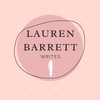

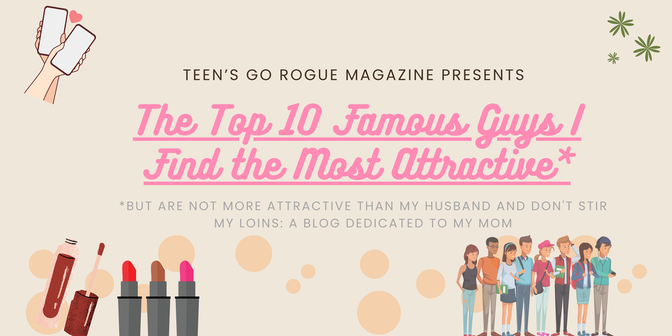
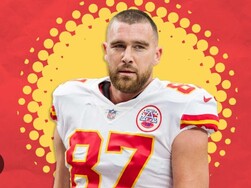


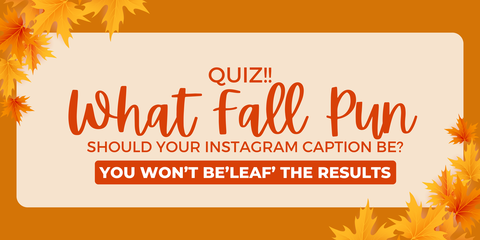


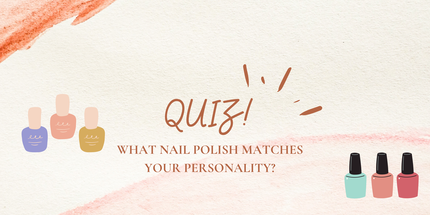


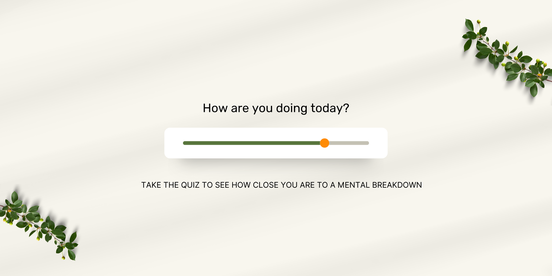


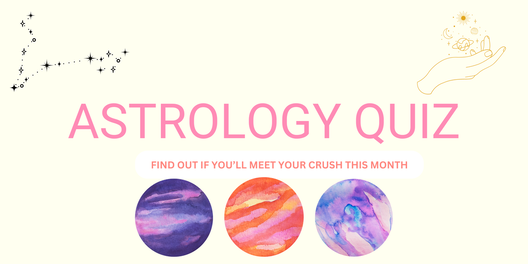

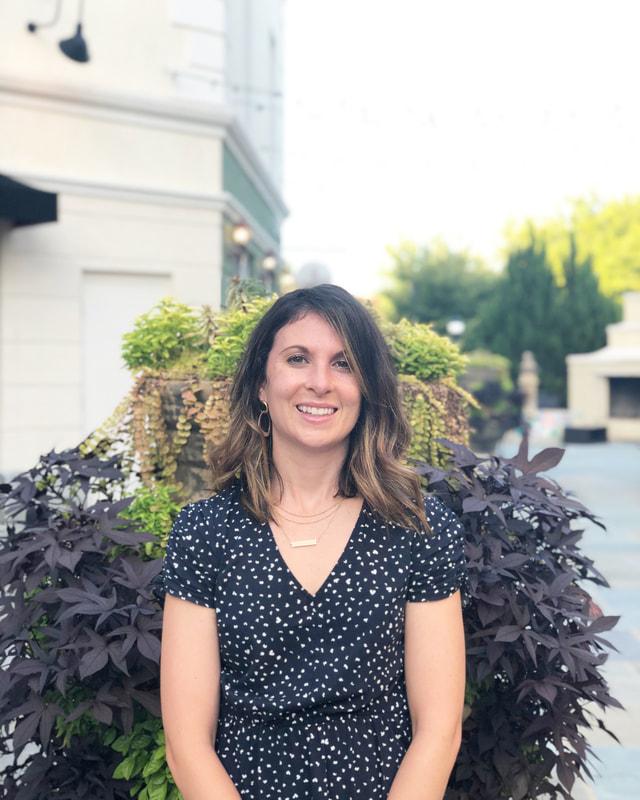

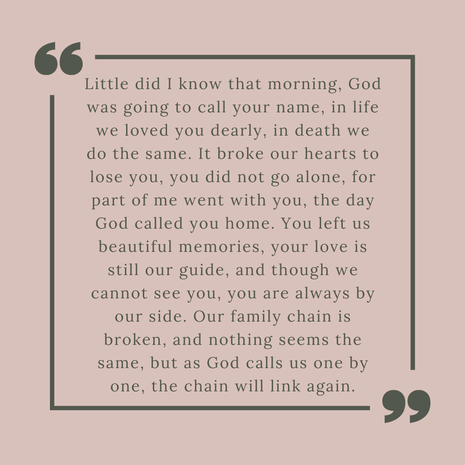
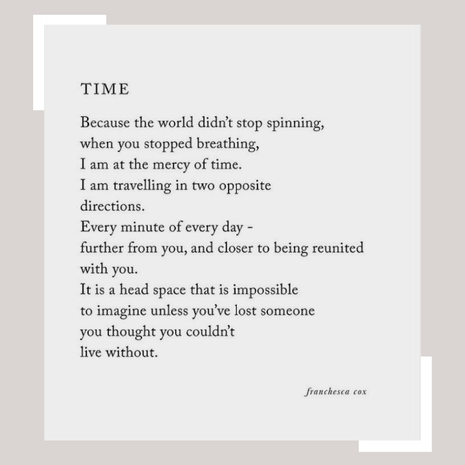
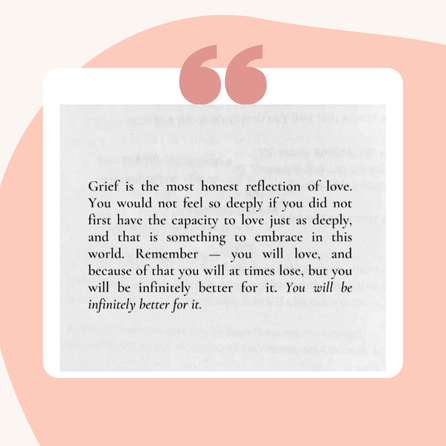
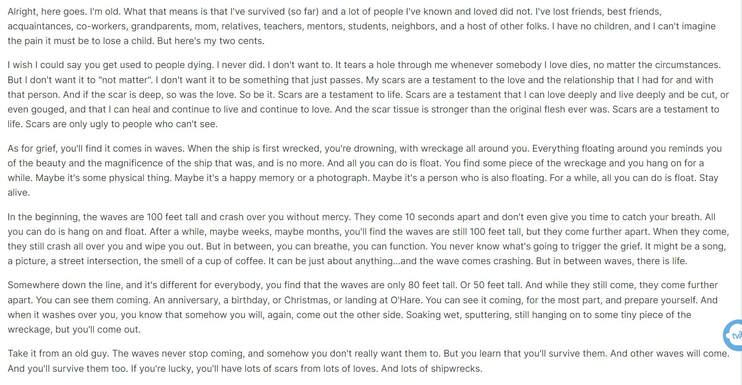
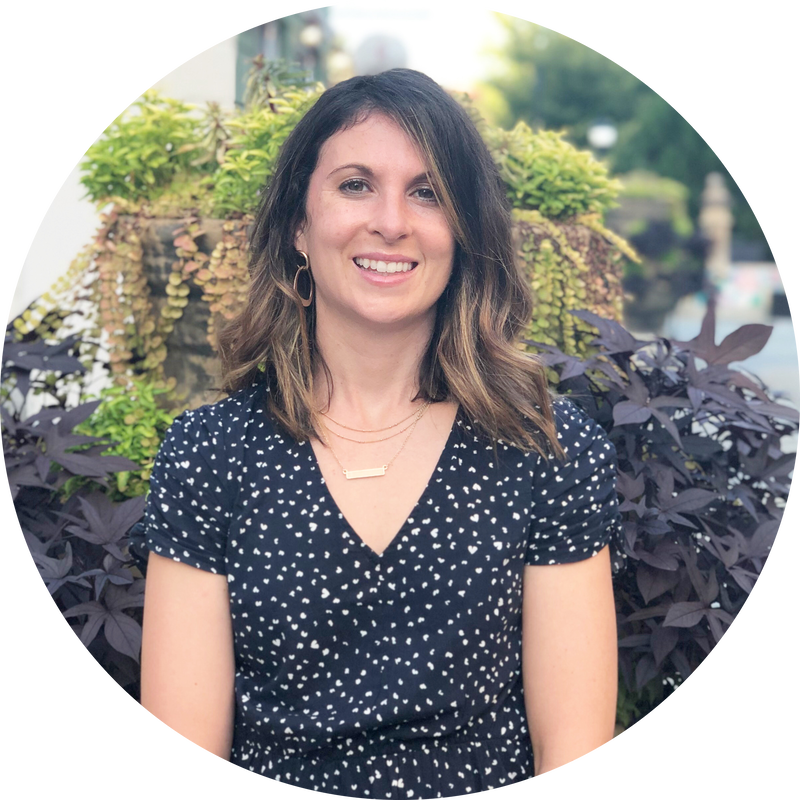
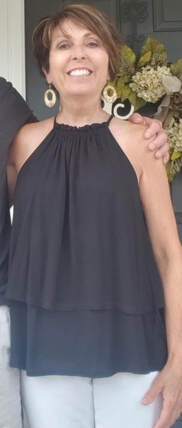
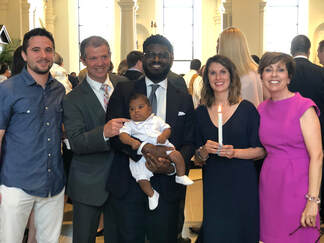
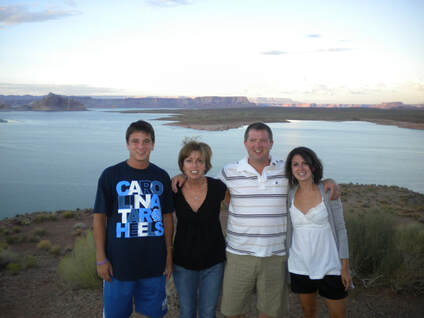
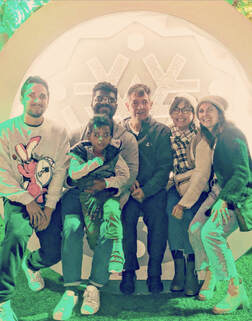
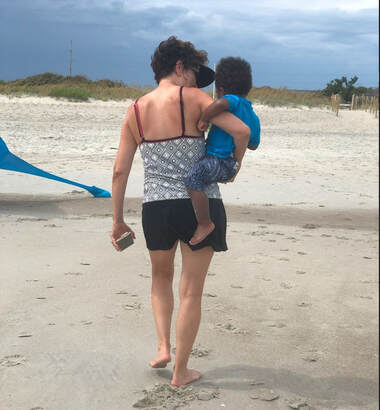
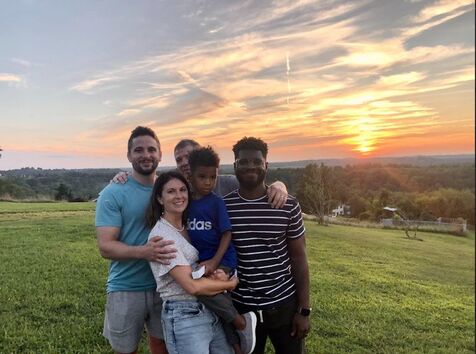



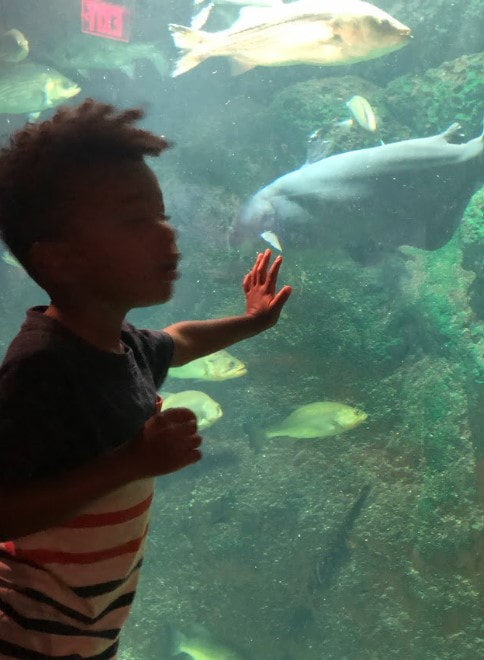
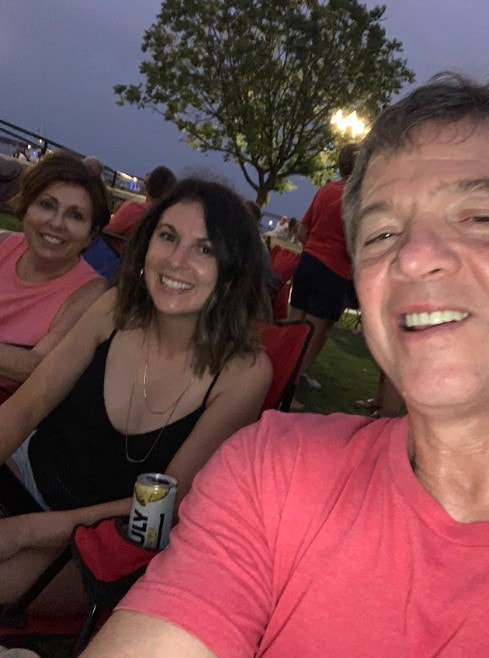
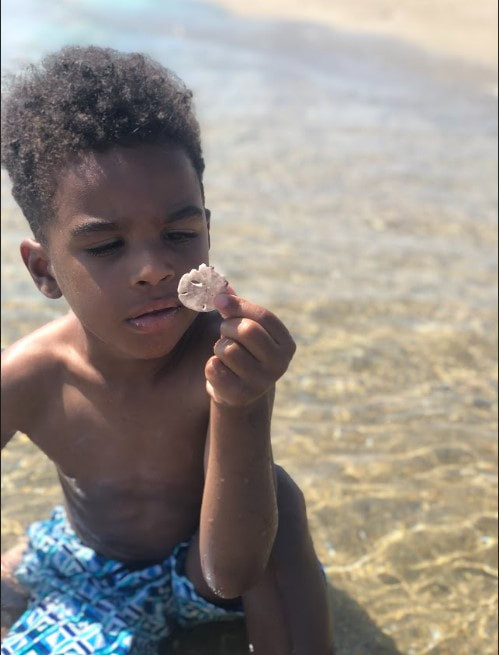
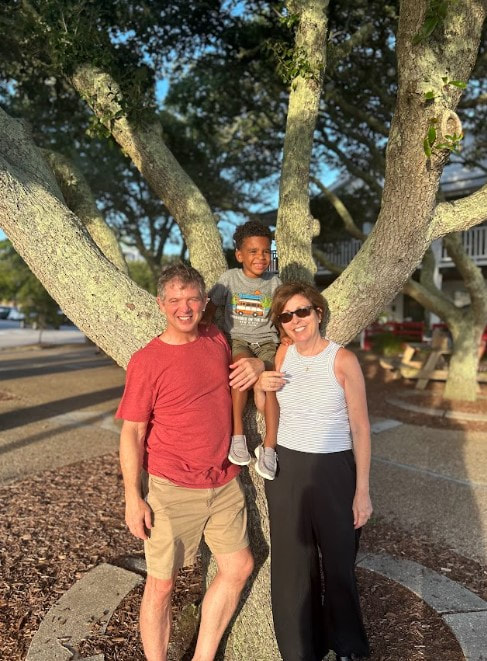
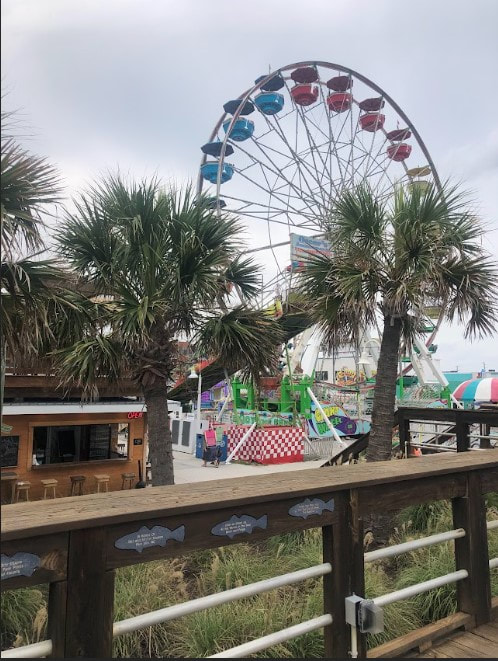

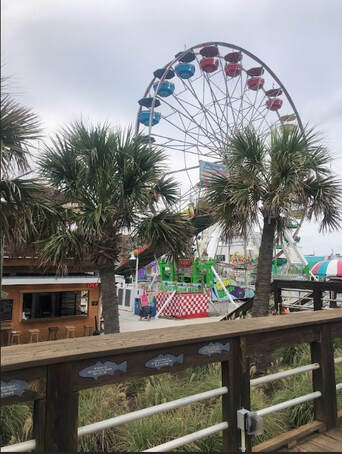

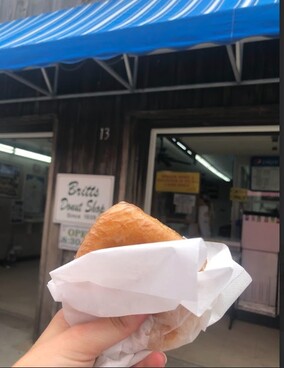
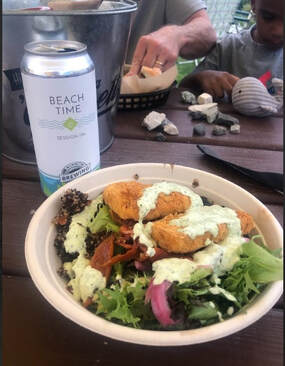
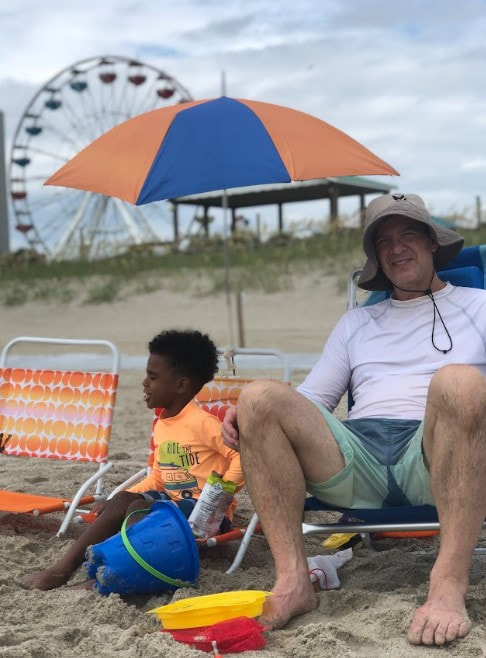
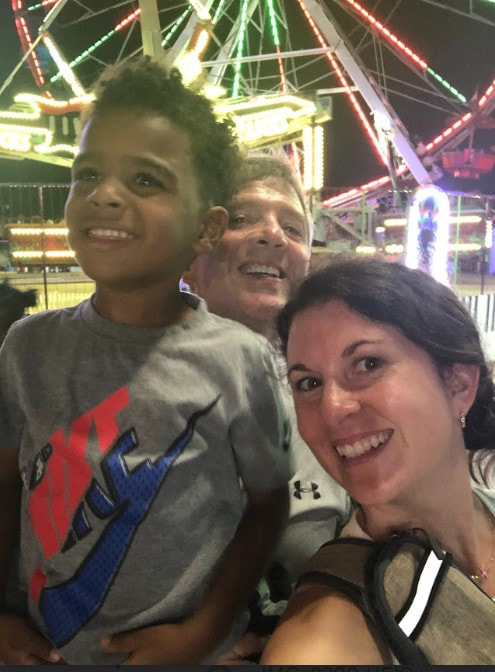

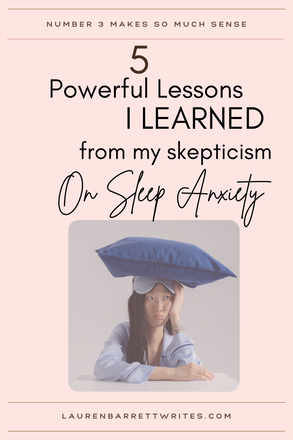
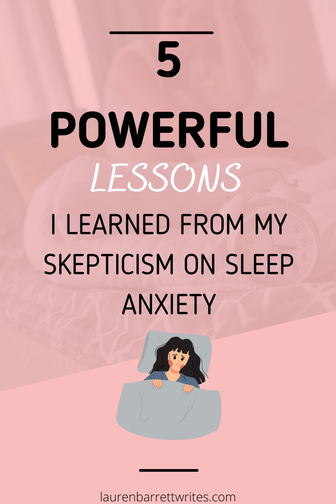

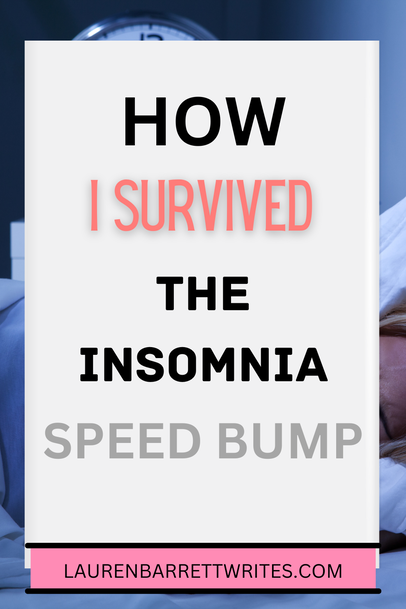
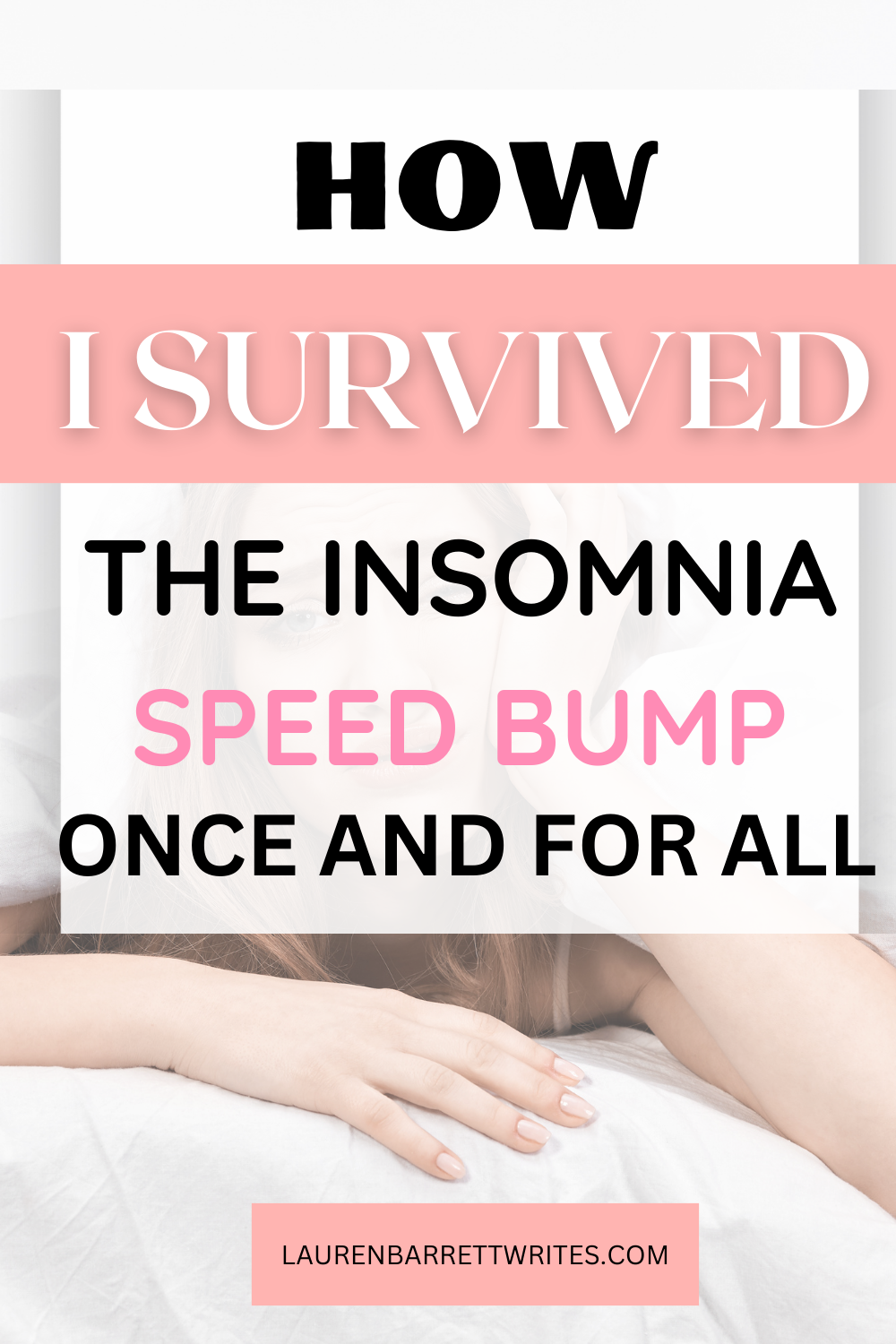
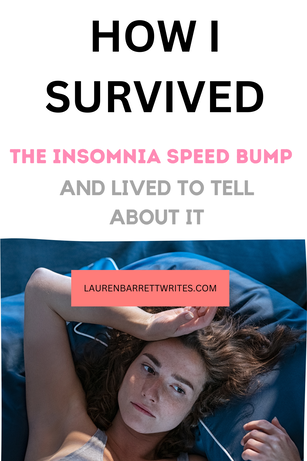
 RSS Feed
RSS Feed